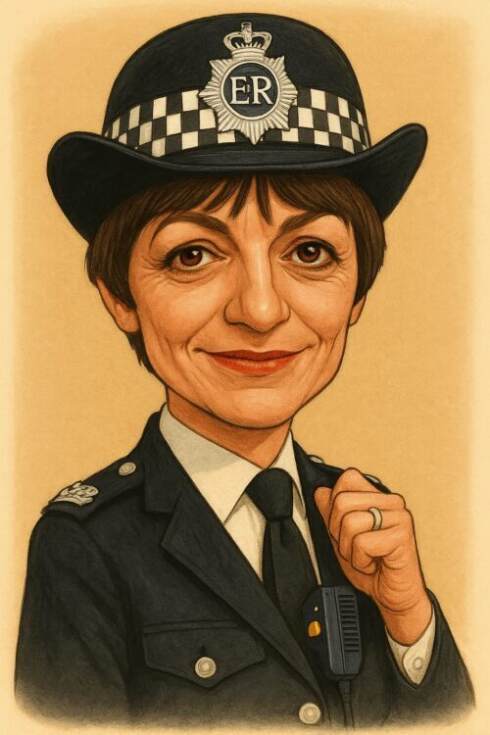5-minute read
Premise
If you’re a Gen X Brit, you probably remember Juliet Bravo. It was one of the first police dramas with a female lead. And honestly, we kept watching because it broke stereotypes. Watching Inspector Jean Darblay command a Lancashire police station felt both fresh and reassuring. The show’s fast pacing, catchy theme music, and subtle social commentary kept us hooked. It wasn’t just about catching bad guys; it was about seeing a woman navigate a man’s world on her own terms.
Characters
- Inspector Jean Darblay: Played by Stephanie Turner, she’s determined, empathetic, and fights to be respected. She stands her ground amid sexism and tough cases.
- Inspector Kate Longton: Portrayed by Anna Carteret, she replaces Darblay. She’s pragmatic, authoritative, and modern. She brings a more progressive vibe to the station.
- Sergeant Joseph Beck: The seasoned pro, balancing discipline with support, keeps the station running smoothly.
- Sergeant George Parrish: Steady and reliable, the backbone of the team.
- Tom Darblay: Jean’s younger brother adds personal layers and relatable family drama.
- DCI Jim Logan: The boss in early seasons, often challenging Jean’s choices.
- DCI Mark Perrin: Later boss, overseeing Kate Longton, adding some new workplace dynamics.
- PC Brian Kelleher: The young constable growing under Longton’s wing, representing the changing face of policing.
- PC Danny Sparks: Loyal and committed, he supports community policing efforts.
- Plus recurring characters like PC Roland Bentley and DS Bernie Duckworth, filling out the tight-knit village vibe.
Production and Style
The show was shot all over Lancashire—Bacup, Colne, Accrington—giving it a genuine local feel. The studio scenes came from BBC Television Centre and Pebble Mill, which explains the classic British-TV look. It’s understated, relying on strong performances and meaningful dialogue rather than flashy camera tricks. The soundtrack? Period-appropriate tunes mixed with subtle scores, giving each episode an authentic rhythm.
Series Structure & Themes
- Series 1–3: Focused on Jean Darblay fighting the stereotypes of women in blue. From domestic dramas to serious crime, she faced it all—sexism, workload, and procedural hurdles.
- Series 4–6: Kate Longton took over, bringing a fresh, modern approach. The show started tackling social issues more directly, reflecting the changing times and internal reforms.
Writing, Tone, and Cultural Impact
Juliet Bravo doesn’t just do police work; it does it with heart. The scripts walk a fine line—tense enough for drama, realistic enough to resonate. The show addressed gender bias without turning it into soap opera. Creator Ian Kennedy Martin based characters on real people, giving everything a lived-in feel. It was one of the first shows to shine a light on a female cop, and viewers loved it. The theme music and opening shots became recognizable symbols of progress and independence in British TV.
Iconic Episodes and Moments
- Series 1, Episode 1 (“Shotgun”): Jean Darblay arrives and earns respect by standing firm during a hostage standoff. Sharp opener that set the tone.
- Series 2 (“Party Fun”): A local baby’s kidnapping brings out Darblay’s compassionate side, making it more than just crime solving.
- Series 3 (“Rage”): A mother’s violent breakdown raises mental health issues rarely touched in 1980s police dramas.
- Series 4 debut: Kate Longton’s first appearance shows her modern methods amid complex social crimes.
- Series 6 finale: Ends on community policing, with both the station and characters evolving.
Reception and Legacy
Juliet Bravo scored big in ratings and critics’ hearts alike. It was one of the first BBC dramas to put a woman at the center of policing. It inspired later series with women in law enforcement roles and shifted public perceptions about female authority figures. Even after its end, all 88 episodes are available on DVD, with reruns still being shown on UK TV channels. Filming locations like Bacup are now fan landmarks, attracting viewers curious about where the magic happened.
Final Thoughts
Juliet Bravo remains a landmark. It blends gritty police procedures with glimpses of social change. The characters stay with you, as does its realistic storytelling. More than just entertainment, it laid groundwork for modern shows celebrating strong female leads in police dramas. For anyone who wants a smart, authentic blast from the past, this series is still worth a watch.
